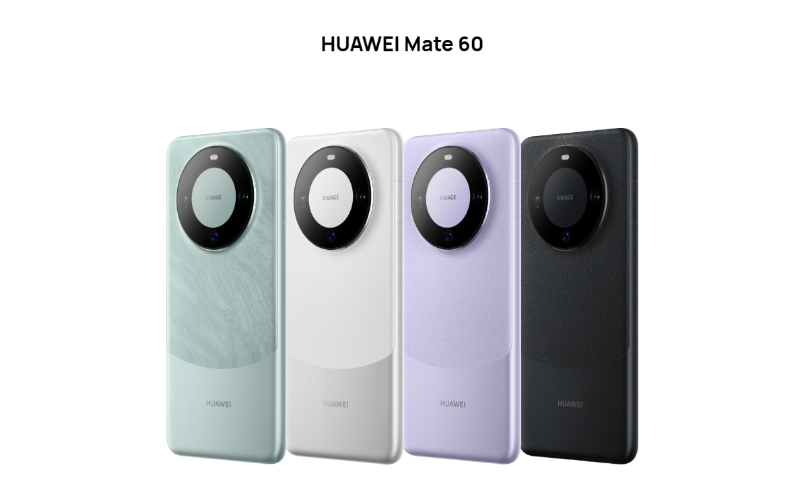
Photo: Consumer.huawei.com
Yesterday, Huawei suddenly started selling the Mate 60 Pro smartphone online without prior notice. And today they began selling the Mate 60 standard version. Due to its powerful features, performance tests have shown that it operates at 5G speeds, causing a stir in China and its stock market. This will definitely attract a lot of attention from the US. Last week, the US Semiconductor Industry Association sounded the alarm and filed a complaint with the US Department of Commerce, claiming that Huawei is secretly establishing a series of semiconductor manufacturing facilities across China, forming a "shadow manufacturing network" to bypass US sanctions. They describe Huawei's progress under sanctions as a "conspiracy of success."
Huawei has kept a very low profile and has not provided detailed technical specifications for the Mate 60 series. Rumors circulating online suggest that the new Huawei phone uses the Kirin 9000S chip instead of Qualcomm's chip. The Kirin chip adopts a self-developed TaiShan CPU architecture, includes stacking technology, and is manufactured using 5nm process technology. In addition, it uses the HarmonyOS operating system, leading many to believe that this is a smartphone with completely independent intellectual property rights, marking a significant breakthrough in breaking the US blockade.
If these rumors are confirmed, it will be a heavy blow to the US' attempt to restrain China using chip technology. That means Huawei has come out of a unique and independent technological and industrial route. It is involved in the field of chip production with head down and hard work and has achieved tangible results. The US' goal of pressing China to the 28-nm manufacturing process low-level mark has been thoroughly thwarted, which will greatly inspire China's semiconductor industry.
The US' semiconductor giants, political elites and companies that have been asked by the US to stop exporting chips, related equipment and chip manufacturing services to China will all panic. If Huawei succeeds and China overcomes the difficulties of producing 7nm chips, the monopoly of Western chips and related manufacturing equipment will plummet, with many prices dropping to "bargain prices." The US' strategy of excluding China from the high-end semiconductor industry through the restructuring of the supply chain has been poked with a big loophole.
It can be foreseen that Washington, which is greatly stimulated by the Huawei Mate 60, will first try to further strengthen sanctions on Huawei and export restrictions on other Chinese companies. However, there are already more than 1,000 Chinese companies on the US Department of Commerce's "Entity List," and most Chinese companies related to semiconductor technology are already on the list. Huawei's breakthrough demonstrates that the US sanction system itself is against the logic of technological progress and industrial logic, and its sanction system has reached its maximum level of tightening and cannot be further tightened.
The Mate 60, as an actual 5G smartphone, has the potential to reshape the market landscape of high-end smartphones in China. Despite the US sanctioning Huawei for four years and Washington elites calling for "shutting down Huawei," the reality is that they have forced and driven the formation of a more powerful Huawei. Huawei, as a company, can manufacture the world's most advanced 5G network equipment as well as independently develop chips, high-end smartphones and operating systems with proprietary intellectual property rights, a task that would require the collaboration of several Western companies.
The Semiconductor Industry Association falsely accuses Huawei, and the implicit panic and hatred towards Huawei in the reports of the US media show how prevalent geopolitical thinking is among American elites. I hope that US semiconductor companies can be more realistic and truly use their influence to push Washington to lift sanctions or significantly reduce export restrictions on China. Only then will they have the opportunity to continue competing with Huawei in the Chinese market. Otherwise, the structure of the Chinese chip market will inevitably undergo a large-scale adjustment, and global semiconductor wealth will continuously shift from the West to China. If this happens, no one can take the blame except for the arrogant and foolish elites in Washington.
The author is a Chinese media professional. opinion@globaltimes.com.cn

